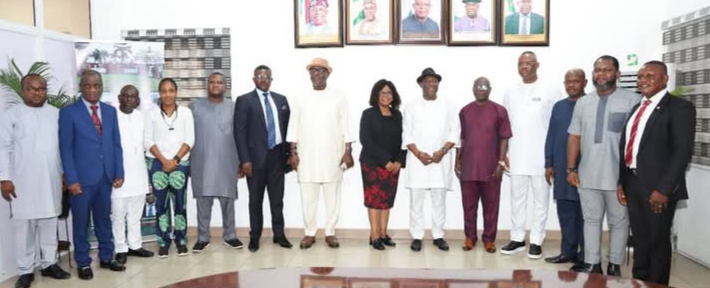The Federal Government has reiterated its commitment to improving public health in Ogoni with the inauguration of a 14-member Technical Planning Committee for the 100-bed Ogoni Specialist Hospital (OSH).
This was disclosed in a statement on Friday by Prof. Nenibarini Zabbey, Project Coordinator of the Hydrocarbon Pollution Remediation Project (HYPREP).
Speaking at the inauguration held at HYPREP’s Project Coordination Office, Zabbey said the hospital forms a vital component of the government’s broader health strategy for Ogoniland.
He noted that the committee’s formation represents a significant move towards making the hospital operational within the set timeline.
According to him, both Ogoni and Buan hospitals are among HYPREP’s health interventions aimed at tackling long-standing challenges in the region.
He added that the projects demonstrate the Federal Government’s resolve to fully implement the recommendations of the United Nations Environment Programme (UNEP) Report.
“This committee brings together experts from multiple fields to ensure sustainable operations of the hospital,” he said.
Zabbey explained that the team would align its plans with national health policies, standards, and regulations while designing a roadmap for the hospital’s operations and governance.
“This includes creating an efficient structure to make the hospital a model for public health delivery in line with global best practices,” he added.
He urged the committee members to submit actionable recommendations within four months to ensure the hospital meets the health needs of the Ogoni people.
Chairperson of the committee, Prof. Christie Mato, praised HYPREP for the initiative and reaffirmed the team’s commitment to fulfilling its mandate.
She described the project as a “beacon of hope” for the Ogoni community and revealed that the hospital is currently 76 per cent complete.
Mato said the facility would include specialised units such as Oncology, Ophthalmology, Dentistry, Obstetrics, Gynaecology, and Emergency Services.
She noted that the committee would define technical specifications and the scope of services for each department.
The committee comprises academics, health professionals, community leaders, technical experts, and representatives of UNEP and Renaissance Africa Energy Company Ltd.
(NAN)


